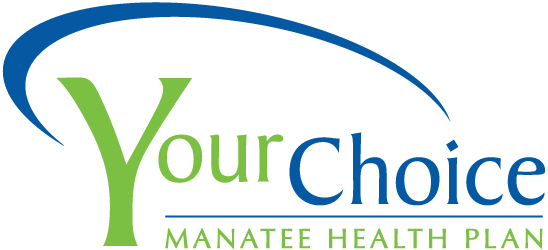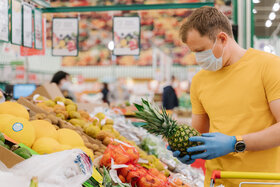
Majid “Jay” Mirzai
Pharmacy Intern, LECOM School of Pharmacy
Pharmacy Intern, LECOM School of Pharmacy
Contributing Editor: Dr. Chris Williams, PharmD
Thanksgiving is upon us and this is the time to be thankful for what we have and people who are in our lives. Also, this is when we gather around the family table to enjoy delicious turkey, mashed potatoes, green bean casserole, and other delicious sides and desserts.
Here at Manatee Your Choice Health Plan, we want you to enjoy this amazing time while being informed about which foods you need to be more mindful of if you are taking certain medications. Even if you do not take any medications yourself, you may be around family members who do, and having this knowledge gives you the opportunity to look out for them. We decided to dedicate this blog to Thanksgiving and medications so you can use this as a guide to help you make informed decisions and prevent complications.
Let’s get started:
Blood thinners - Coumadin (warfarin)
If you are taking warfarin, you know how difficult it is to keep your INR within goal. Eating too much green leafy vegetables when you take warfarin decreases the ability of warfarin from working effectively and preventing blood from clotting. Keep in mind that this does not mean you shouldn’t enjoy green bean casserole or salad, but just be mindful of how much of this group of food you are eating especially if it is not part of your regular diet.
Another Thanksgiving food to be aware of if you are taking warfarin is cranberry sauce. Eating too much of cranberry, cranberry sauce, or cranberry juice, can increase the effectiveness of warfarin and increase the likelihood of having bleeding issues. Again, it is important to consume this food in moderation and only eat a small portion.
How about alcohol and Coumadin (warfarin)?
Consuming alcohol, if you take warfarin, can increase the risk of bleeding. It is important to be aware of this interaction and consume alcohol in moderation if you do so during holidays.
Blood pressure and heart medications – Digoxin, ACE Inhibitors (enalapril, ramipril, etc)
If you take blood pressure or heart medications, you have already heard about the importance of using salt in moderation. Consumption of too much salt can lead to increase in blood pressure. Many times, patients substitute salt with salt substitutes. However, salt substitutes often replace sodium with potassium. Consumption of too much potassium can lower the effectiveness of digoxin and increase the potassium level in your body (because ACE Inhibitors already increase potassium levels).
Parkinson’s medication – Sinemet (carbidopa-levodopa)
Levodopa is the most important medication used for the management of Parkinson’s disease. This medication should not be taken with food that contain protein. This is important because levodopa competes with protein for absorption in the small intestine and results in levodopa not getting absorbed effectively.
If you or your loved one takes levodopa, this medication is recommended to be taken 30-60 minutes prior to eating a meal that contains very low amount of protein.
Diabetic or pre-diabetic?
Before we talk about diabetes, know that we are not telling you that you cannot enjoy these delicious food and desserts. You can still enjoy this feast, but it is very important that you do some extra planning, as well as having self-control.
Do not skip a meal. Have your breakfast and snacks throughout the day. It is more difficult to manage your blood sugar if you skip meals. When creating your Thanksgiving plate, be aware as to which food you really want to have and which ones you do not care much about. Considering this, make your plate in a way that there is a good balance of carbohydrate, fat, and protein that is similar to your usual dinnertime plate.
It is important to monitor your blood sugar level; check your blood sugar before and 2 hours after dinner and administer insulin according to your blood sugar levels.
After the meal, take a walk with loved ones as exercise lowers your blood glucose level and gives you an excuse to be away from food.
What about alcohol?
Alcohol interacts with many medications.
- If you are taking Coumadin (warfarin), alcohol can increase the effectiveness of warfarin which results in increased risk of bleeding.
- If you have high blood pressure, excessive amounts of alcohol can increase your blood pressure.
- If you are taking antidepressant medications, alcohol can increase the likelihood of experiencing side effects including drowsiness, rise in blood pressure, and feeling very sleepy.
- If you have diabetes and use insulin, alcohol can lower your blood sugar which can be dangerous if blood sugar is not monitored.
In conclusion, use this article as a guide to help you make better choices when enjoying these delicious food while spending time with loved ones. Moderation is the key!
Feel free to call us if you have any questions.
941.748.4501 x6459 or x6406




